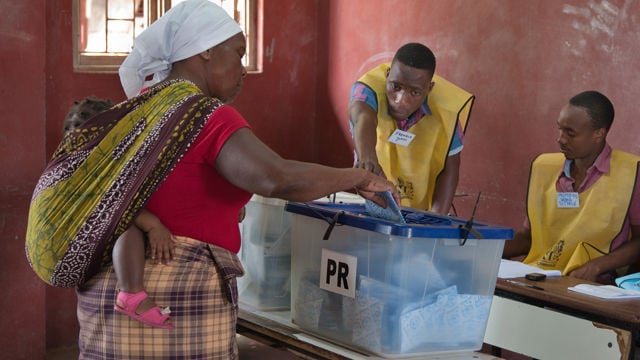
Governance and economic development
From 2020 to 2022, the proportion of low-income countries with budget deficits above 5% of GDP more than doubled to 56%. The decline in democratic governance and lack of connection between ruling elites and ordinary citizens further complicates the situation. Strengthening core public functions requires better revenue collection, sound fiscal policies, improved public financial management and anti-corruption measures.
Why
Low-income countries face complex challenges that hinder economic and social growth. Necessary infrastructure, effective regulatory environments and sufficient access to capital are often lacking, especially for small and medium-sized enterprises. Corruption and illegal capital flight drain the state's resources, reduce investment, and undermine trust in society. Weak education systems and a lack of qualified labor also limit the business world's potential. Norwegian aid will contribute to creating better framework conditions for the business world, strengthen tax systems, increase public financial management and promote digital transformation.
What
Norwegian aid focuses on several key areas, including improving the framework conditions for business development through reform work and regulations, infrastructure development, capacity building, and better access to capital. Strengthening tax systems and public financial management is also central, with measures such as tax reforms and combating illegal capital flight. The assistance also promotes digital public goods and digital public infrastructure to give the population access to social services and support economic growth. Fighting corruption and promoting transparency are also central to Norwegian aid in order to ensure efficient use of resources and increased trust in society.
Where
The development cooperation takes place globally, with a significant part of efforts aimed at developing countries in Africa south of the Sahara, but also in other regions. Norway collaborates with international organizations such as the UN, the World Bank, the IMF, and multilateral programmes, as well as national authorities, civil society organizations and private actors in developing countries. Examples of specific projects include strengthening tax systems in Rwanda, Tanzania, Zanzibar and Kenya, developing national statistical systems in Ghana and Kenya, and promoting digital solutions through the Alliance for Digital Commons. Norwegian aid also supports measures to fight corruption through cooperation with organizations such as the United Nations Office on Drugs and Crime UNODC.